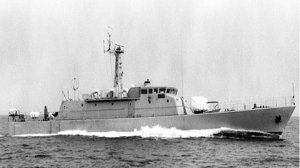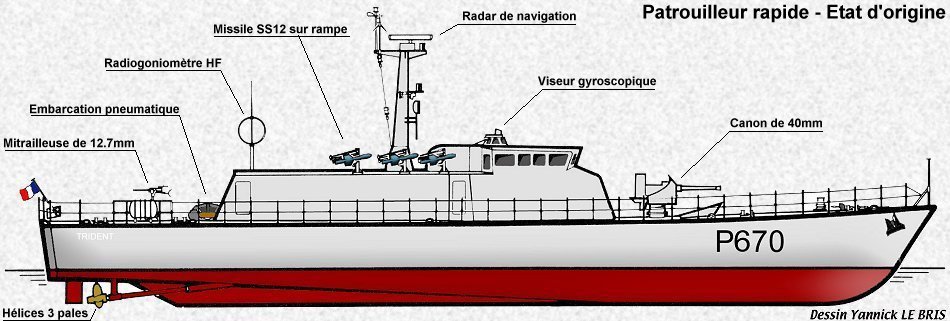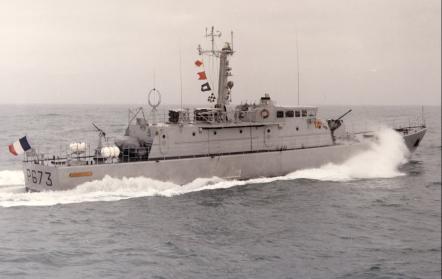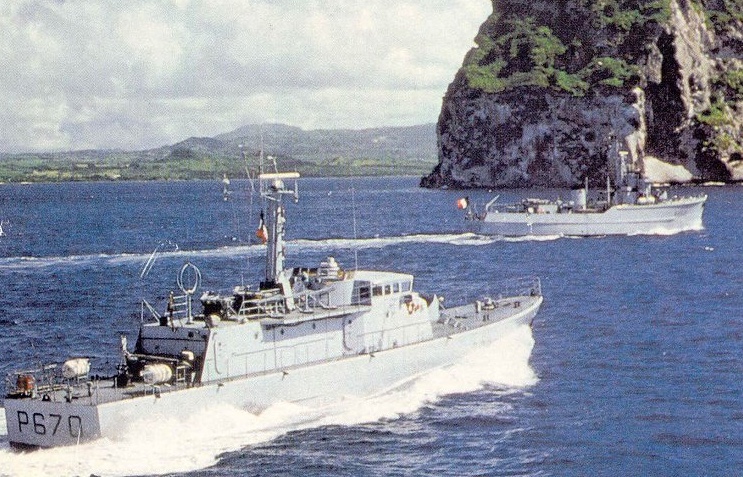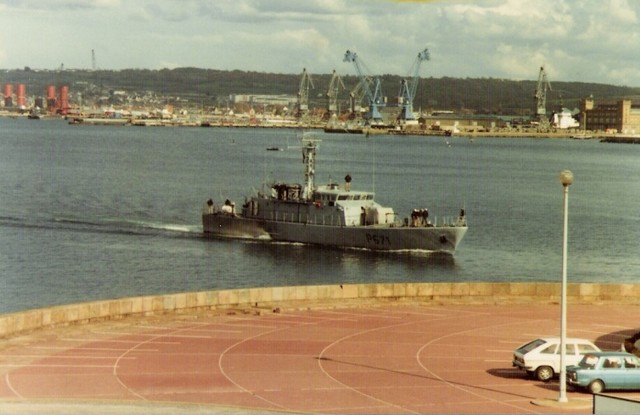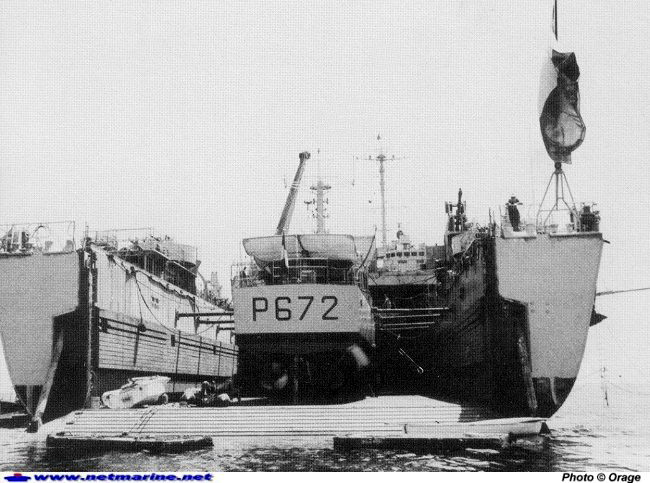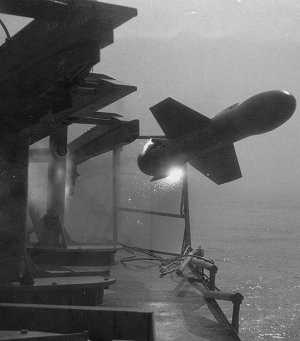- Yes
- No
About this ship and its interest in War Thunder
This small patrol coaster is everything you want from a high tier coastal ship : BOFOR for close range engagement, early clumsy AS missiles that still pack a punch for lightly armored threats, and a couple HMGs for (slight) AA defenses. What’s not to like.
Context :
The 1950’s in France saw the modernisation of their entire fleet, and the renewal of the French naval industry. Escorts and destroyers, AA ships and aircraft carriers were slowly bringing back French made equipement into the Marine Nationale, mostly relying on foreign, american or british made equipment since the end of the war. The French coast were guarded by new, military 400t coastal escort of the Adroit class. However, they were limited to military operations and liaison, and it was obvious that they needed smaller ships for more a more local, efficient surveillance. This surveillance was done until the end of the 1960’s by American-made coastal minelayers of the MSC serie, the type D. However, those ship became old and obsolete quite fast, as the navy needed faster, smaller ships to cover he vast areas of the French EEZ, especially around their islands, in the pacific, the caribbean, or even the Indian Ocean. Following the satisfying results of the experimental patrol boat P730 “La Combattante”, it was decided to create similar patrol boats. Those were the PATRA, or Patrouilleur Rapide, which means “Rapid Patrol ships”.
History :
The 1st of the 4 PATRA to enter production was the Trident, in 1975. At the time they belonged to the French navy, as they were the ones responsible for most of the coastal surveillance in France. Those ships were meant to carry multiple kinds of missions, which were this ones :
-
Nuclear Ripost (absolute priority)
-
Defense of the French naval holds
-
Defense of the DOM-TOM (French islands)
-
High Sea operations
It also included search and rescue, as well training and exercises with the special forces of the navy. The Trident was sent to the Caribbeans in december of 1976, and immediately started working, mostly facing illegal immigration and drug trafficking. Soon, she’s followed by the Pertuisane (partisan) and the Glaive (gladius), which are both assigned to the North Sea, and equipped to face the cold of the Northern Atlantic climate. The last one, being built by another shipyard, is the Épée (sword), and it’s sent to Mayotte, near Madagascar, the same year.
At the time, being still military vessels, they’re heavily armed for their roles, the most distinguishing feature being the 6 SS-12 anti-ship missiles on each side of the cabin. During those years as navy vessels, their biggest catch was probably the Sea Rover, a cargo ship belonging to an international drug gang.We can also mention the Glaive, which towed a crashed British plane near the Casquet islands. Starting 1986 however, the ships are slowly replaced by the P-400 new high tech patrol vessels, and as such, all of them, along with the Combattante, are given the to the Gendarmerie Maritime, which becomes the main coast guards in France. They are then stripped of most of their weaponry, aside from .50 cals, and used as coast guard vessels. Although most of them have retired in the end of the 90’s, the Glaive was still used until 2015, after which it was replaced as well.
Specifications :
DIMENSIONS
Total length : 40.70m
Total width : 5.90m
draught : 1.55m
air draught : 13.70m
maximum displacement : 115t (148 max)
ENGINE
type : 2 x diesel AGO 195 V12 CZSHR, 2200 HP in total (2500 full speed)
propellers : 2
max speed : 26 knts
autonomy : 1500 miles at 15 knts
ARMAMENT :
1 x 40mm CAS mle 1951 (French variant of the 40L60 BOFOR)
1 x 12.7mm Browning M2 machinegun or 2 x 12.7mm M2 machineguns (replaces the 6 SS-12 missiles in the 1980’s)
6 x SS12M anti-ship missiles
CREW : 2 officers, 15 sailors
PHOTOS
PLANS :
PHOTOS :
Spoiler
PHOTO OF THE P673 PERTUISANE
PHOTO OF THE P670 TRIDENT
PHOTO OF THE P671 GLAIVE
Note the covered missiles in this photo, as well as the 12.7mm MG on the back.
PHOTO OF THE P672 ÉPÉE
PHOTO OF A MISSILE LAUNCHED FROM THE GLAIVE
SOURCES :
Spoiler
http://www.netmarine.net/f/bat/glaive/genese.htm
JACQUOT Laurent, Un siècle de véhicules de la gendarmerie nationale, ETA-I, 2005
